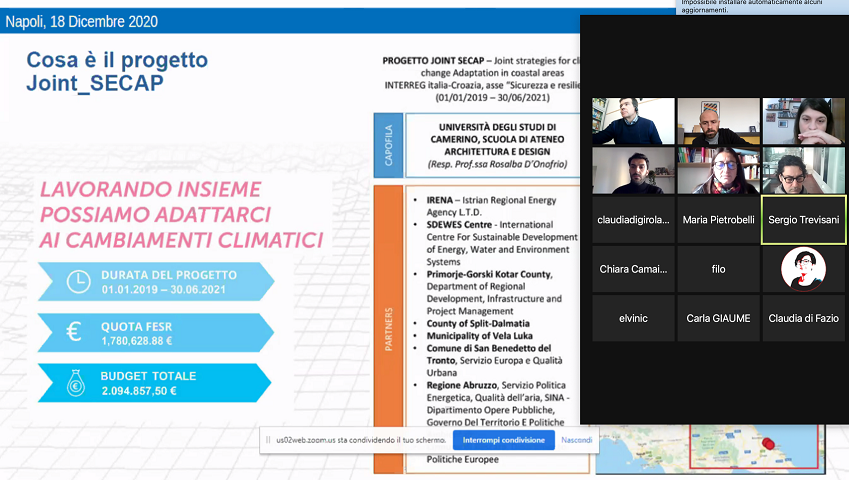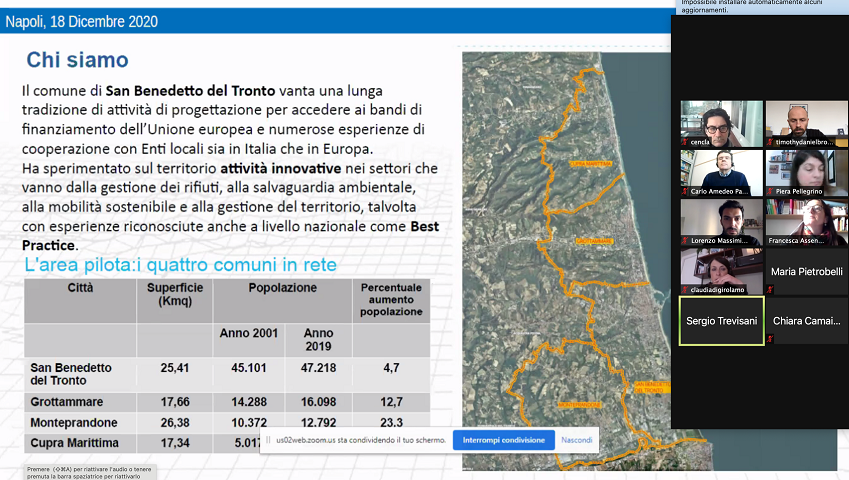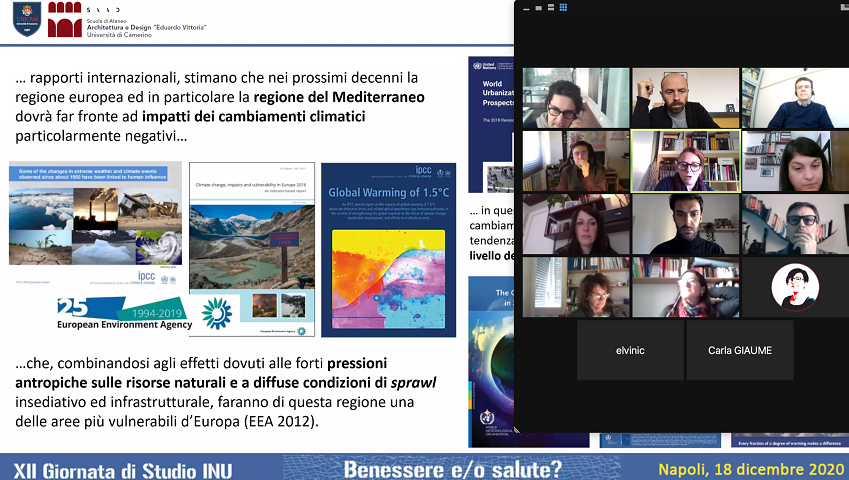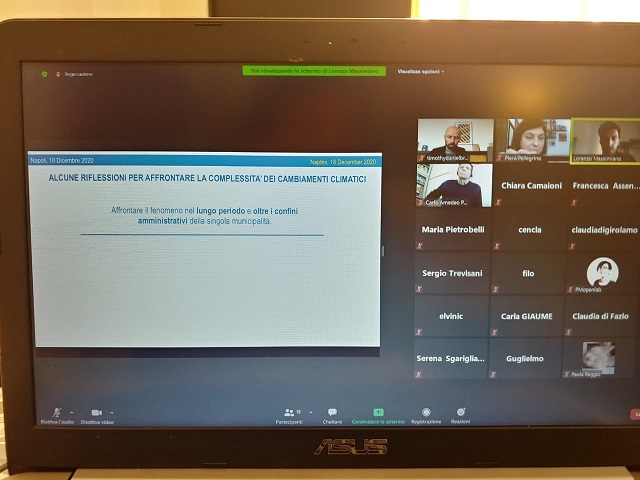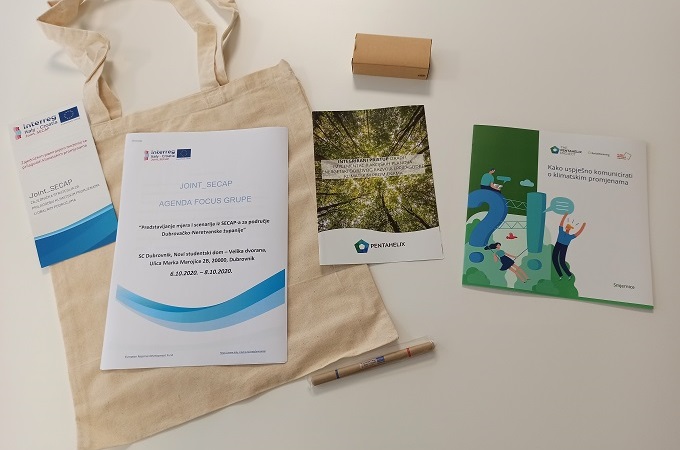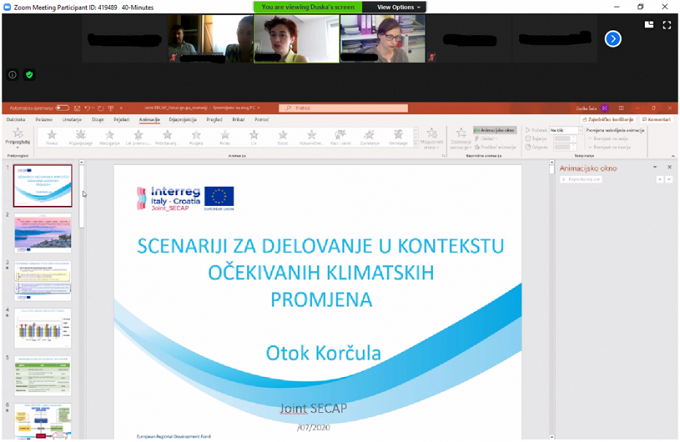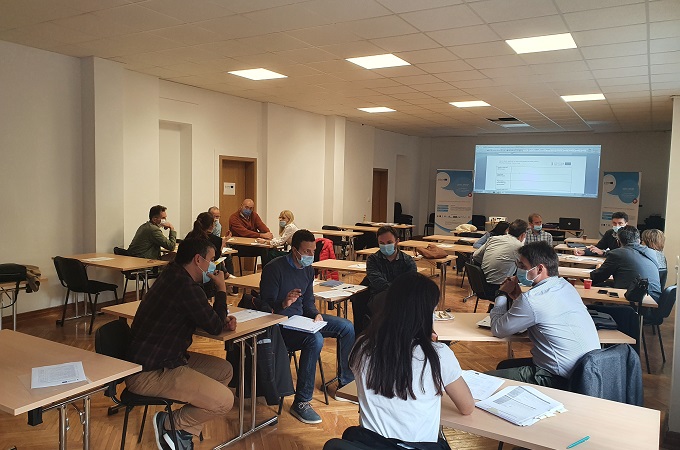UNICAM organized the Special Session 8 on the topic of “Climate change and planning” as part of the 12th international INU Study day, that was held via webinar on Friday the 18th of December 2020. The focus of the meeting was the "Joint_SECAP" project, as well as other topics and experiences regarding climate change and adaptation.
Experts and researches intervened by presenting the results of ongoing researches, and in particular: prof. Angelucci (University of Chieti-Pescara) showed how much public space can be related to climate change and how this topic can be addressed; arch. Centanni (Municipality of Ancona) illustrated how the city of Ancona is dealing with adaptation through the P.A.L. also as an occasion to redevelop some coastal areas of the city; arch. Assennato (Italian Institute for Environmental Protection and Research, ISPRA) showed the national monitoring experience and in particular the SOIL4LIFE project for the mapping of soil consumption as a tool of interest for planning.
UNICAM together with the Municipality of San Benedetto del Tronto, and prof. Fusero’s from the University of Chieti-Pescara illustrated the progress of the Joint SECAP by providing input for the discussion on adaptation measures and best practices, on the evaluation of the risk and vulnerability assessments and on how to involve citizens in such analysis by showing what was implemented in the project target areas.
Therefore participants of the session discussed the theme of adaptation as a topic that needs to be addressed in its complexity, reading its multiple facets, in the awareness that climate change requires interdisciplinary and multiscalar approaches, and knowing that the issue can also be an opportunity for future developments and improvements

